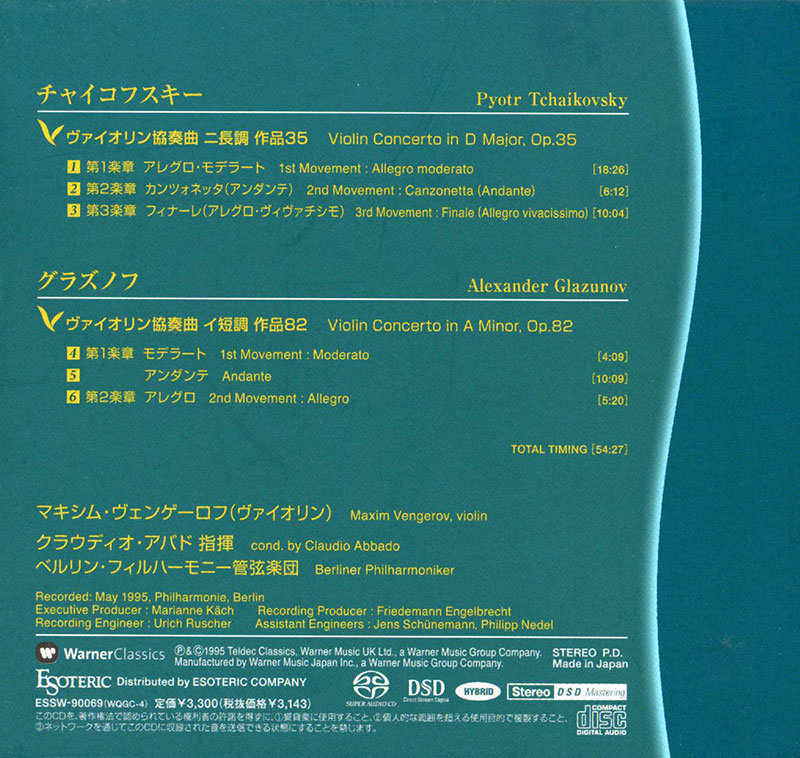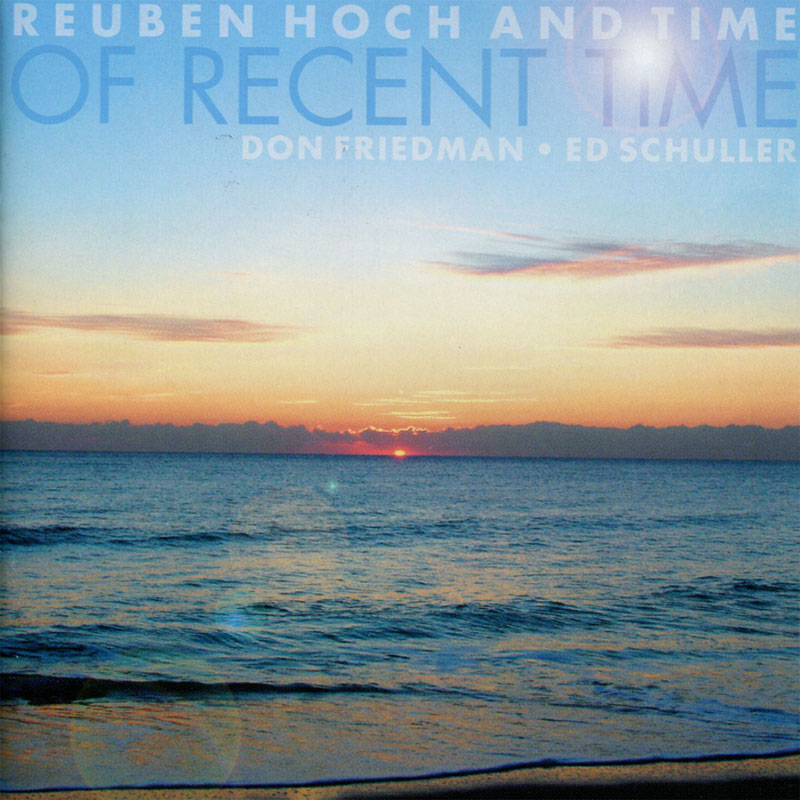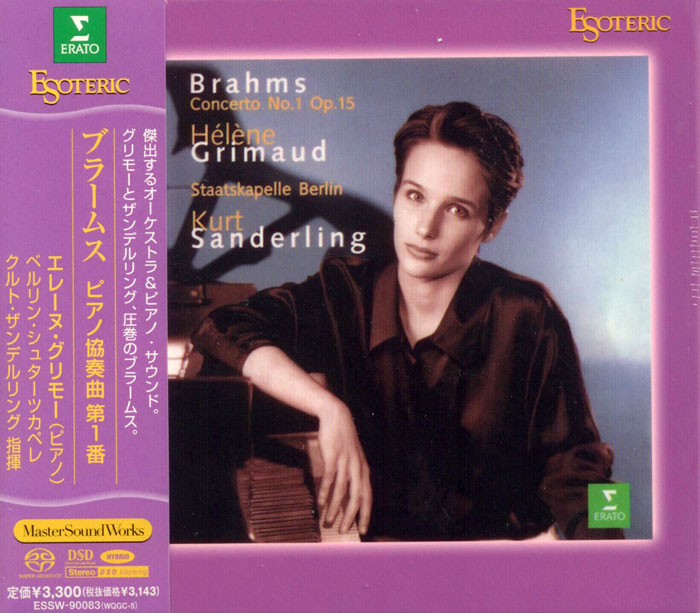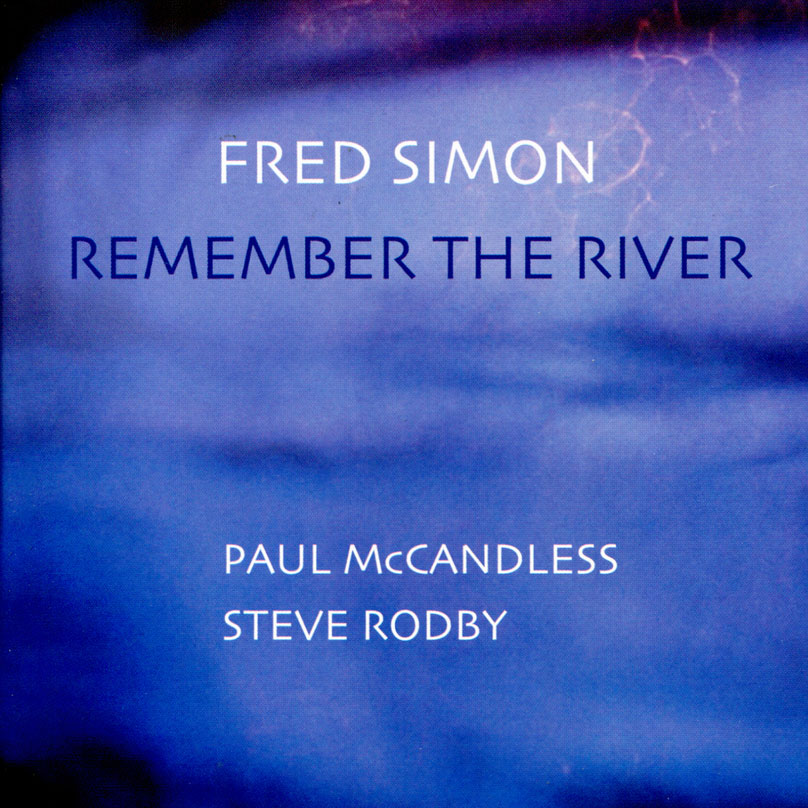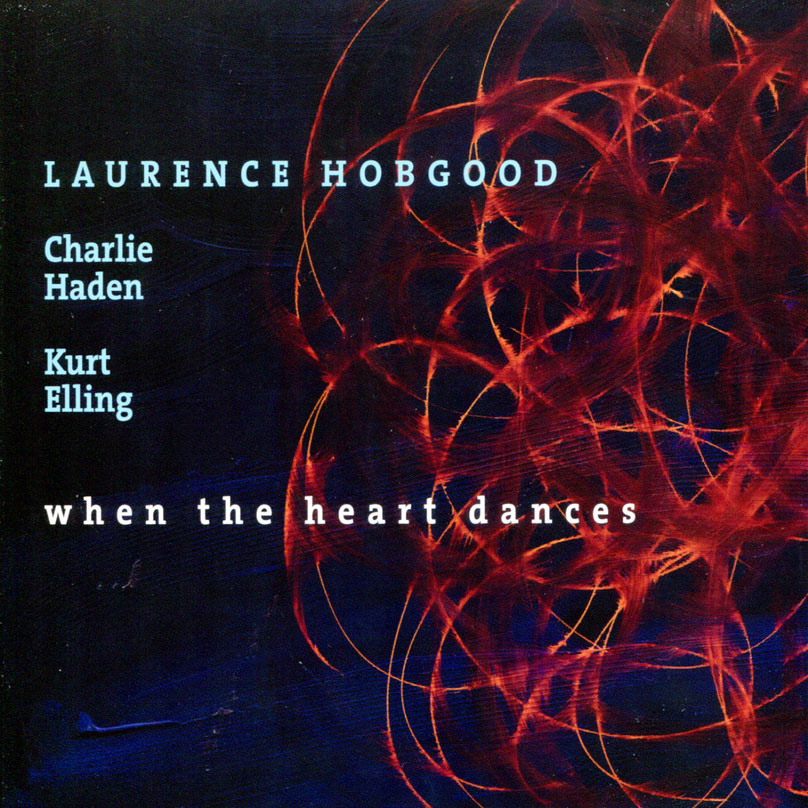Logowanie
Dziś nikt już tak genialnie nie jazzuje!
Bobby Hutcherson, Joe Sample
San Francisco
SHM-CD/SACD - NOWY FORMAT - DŻWIĘK TAK CZYSTY, JAK Z CZASU WIELKIEGO WYBUCHU!
Wayne Shorter, Freddie Hubbard, Herbie Hancock, Ron Carter, Elvin Jones
Speak no evil
UHQCD - dotknij Oryginału - MQA (Master Quality Authenticated)
Chesky! Niezmiennie perfekcyjny
Winylowy niezbędnik
ClearAudio
Double Matrix Professional - Sonic
najbardziej inteligentna i skuteczna pralka do płyt winylowych wszelkiego typu - całkowicie automatyczna
TCHAIKOVSKY, GLAZUNOV, Maxim Vengerov, Claudio Abbado
Violin Concertos
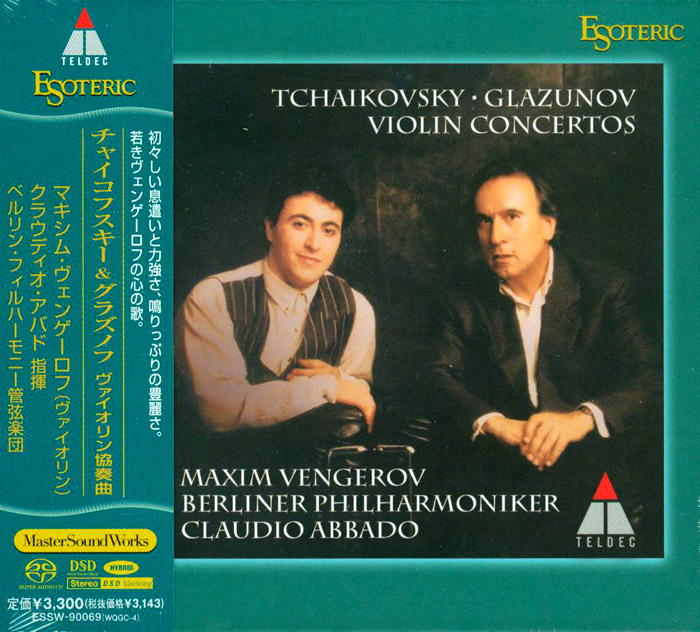
- Maxim Vengerov - violin
- Claudio Abbado - conductor
- Berliner Philharmoniker - orchestra
- TCHAIKOVSKY
- GLAZUNOV
ESOTERIC - NUMER JEDEN W ŚWIECIE AUDIOFILII I MELOMANÓW - SACD HYBR
Tak, oto rzadki przykład jak siła artystycznej, muzycznej wyobraźni, odwaga i śmiałość w odczytaniu jakże znanych kompozycji potrafi ożywić dzieło spiżem pokryte, stopionym z wykonań wielkich i największych. Venegerov porwał orkiestrę i dyrygenta, pozwolił im na pełnię ekspresji. A może to oni stworzyli soliście klimat by mógł wyśpiewać te dwa, jedne z najpiękniejszych w całej literaturze wiolinistycznej koncerty?
Wspaniały remastering pozwala cieszyć się najdrobniejszym szczegółem gry Vengerova.
... Surprisingly — unless I have missed a rival on the two long lists — this seems to be the only disc coupling what might reasonably be counted the two greatest romantic Russian violin concertos: if Vengerov's reading of the Tchaikovsky emerges clearly as a leading contender among many superb versions, in the Glazunov he gives a warhorse concerto extra dimensions, turning it from a display piece into a work of far wider-ranging emotions.
This Tchaikovsky immediately establishes itself as a big performance, not through close placing of the soloist — the balance is forward though not excessively so — but both in the manner and in the range of dynamic of the playing. For all his power, and his youthfully eager love of brilliance, Vengerov is never reluctant to play really softly, and how magical that often is, as in the transition into the main second subject. Each theme in turn is sharply characterized, with dynamic contrasts cleanly established, as in echo phrases. If in the brief introduction Abbado and the Berlin Philharmonic sound a little less sharp than usual, the tutti after the main exposition (track 1, around 6'20") has a bite and swagger that I have rarely known.
The central Canzonetta is full of Russian temperament, with Vengerov freer in his rubato than most rivals, but conveying such natural unforced expressiveness there is nothing self-conscious about it. After a warmly urgent middle section the reprise brings another moment of pianissimo magic. The finale is fast, light and sparkling, with articulation breathtakingly clean to match the transparency of the orchestral textures as controlled by Abbado. As in most recordings nowadays, the little traditional cuts are opened out, and Vengerov rounds the performance off with an explosion of excitement such 86 Gramophone November 1995 as one might expect in the concert-hall but not often in the recording studio.
The Glazunov is if anything even more remarkable, when, as I say, Vengerov finds such range of emotion, making one appreciate afresh what a wonderful and varied sequence of melodies the composer here offers. It is characteristic of Vengerov how for each in turn he shades and contrasts his tone-colours. He reserves his big fat romantic tone for the third theme, where most rivals let loose sooner with less subtle results. As in the Tchaikovsky, rubato is free but always spontaneous-sounding, and the lolloping fourth section brings some delicious portamento. Predictably the dashing final section is spectacular in its brilliance, again with each episode sharply contrasted and with orchestral textures fresh and clean. One can hardly wait for Vengerov's next disc.
-- Gramophone [11/1995]
Muzycy::
Maxim Vengerov, violin
Beriner Philharmoniker
Claudio Abbado, conductor
































